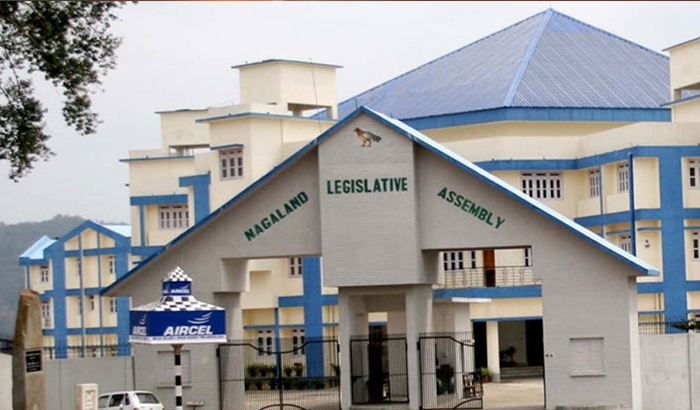Kohima: The Nagaland Assembly’s monsoon session, beginning on Monday, is likely to adopt resolutions against the implementation of the Forest Conservation (Amendment) Act and Uniform Civil Code (UCC) in the northeastern state, officials said on Sunday.
Assembly sources said that in the 14th assembly session, which would have three sittings, the government would move the new Municipal bill.
The consultative meeting of the state government with the apex tribal bodies and Civil Society Organisations (CSO) held on September 1 had unanimously decided that the government would adopt resolutions in the state Assembly against the implementation of the Forest Conservation (Amendment) Act and UCC.
The all important consultative meeting also decided to table the new Municipal bill considering the customary laws and special constitutional provisions prevailing in Nagaland.
Municipal elections in Nagaland were first held in 2004, and the terms of the civic bodies ended in 2009-10. The state government had tried to hold municipal elections with 33 per cent reservation for the women but the move was objected to by the influential CSOs and due to these opposition, no civic body election was held so far.
The state government, due to the pressure of the CSOs, Naga tribal hohos and various other organisations, repealed the Municipal Act in March and constituted a committee to draft a new law.
Article 371A grants special protection to the Nagas in Nagaland on traditional customary, religious and social practices and also on ownership and transfer of land and its resources. The cultural, societal, traditional and religious practices, land and resources in Nagaland are protected under Article 371A, which also exempted from the 73rd Amendment to the Constitution for the setting up of municipalities.
But the 74th Amendment did not give that exemption on the grounds that the state’s urban administrations were not part of the customary practices.
Many Naga organisations claimed reservations for women in Urban Local Bodies would go against their community’s customary laws. In Nagaland, over 95 per cent of the land and its resources belong to the people and the community while the government owns only about 5 per cent of the total area, including reserve forests, roads.
–IANS


Comments are closed.